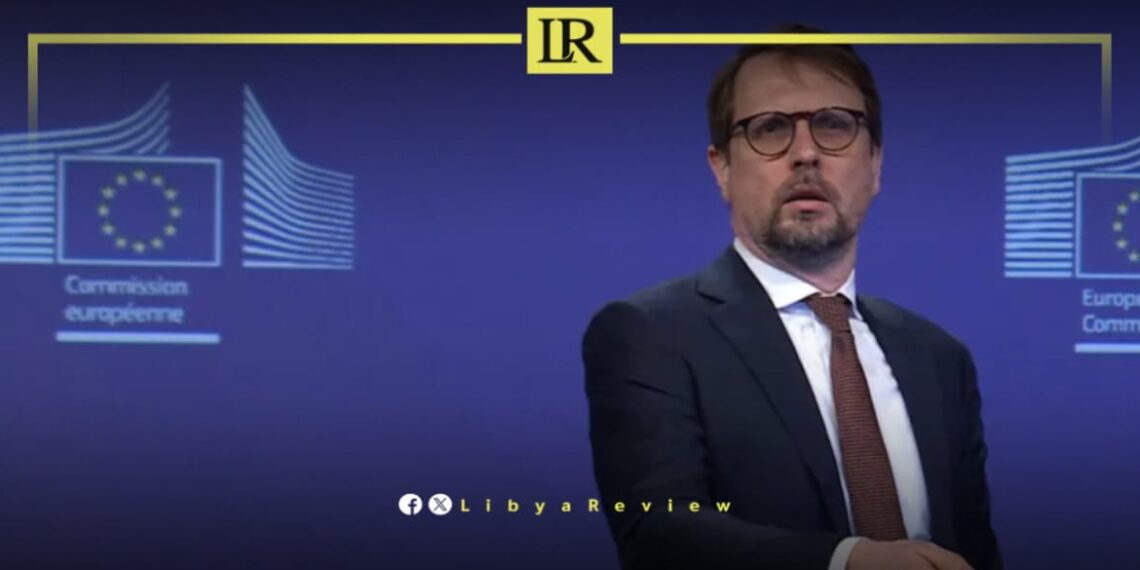The European Commission stated on Wednesday that the cancellation of a high-level EU delegation’s meetings in Benghazi was due to a “protocol issue,” downplaying political tensions and reaffirming the EU’s commitment to engagement with all Libyan parties.
Commission spokesperson Markus Lammert told reporters the Benghazi leg of the Team Europe visit had been planned as part of a broader diplomatic mission involving EU Commissioner for Internal Affairs and Migration Magnus Brunner, alongside interior ministers from Italy, Greece, and Malta.
“What happened in Benghazi was a protocol issue. This is why it was not possible to carry out the planned meetings,” Lammert said. He added that the EU would maintain communication channels with all Libyan stakeholders.
Deputy chief spokesperson Stefan de Keersmaecker declined to elaborate further, noting that the visit had been coordinated jointly with EU member states. “We’re not here playing a blame game,” he said.
The visit had successfully begun in Tripoli, where the delegation held discussions with Libya’s internationally recognised Government of National Unity (GNU), focusing on deepening cooperation to address surging irregular migration flows.
However, the situation took a sharp turn on Tuesday when the delegation landed in Benghazi. Libya’s eastern-based government, under Prime Minister Osama Hammad and backed by Field Marshal Khalifa Haftar, declared the visiting officials “persona non grata,” ordering their immediate departure from Benina Airport. The eastern authorities cited breaches of diplomatic protocols and Libyan law.
Italian Interior Minister Matteo Piantedosi, part of the delegation, later said the incident would not damage Italy’s long-standing cooperation with Libya. Maltese Minister Byron Camilleri similarly referred to the abrupt cancellation as due to a “protocol issue.”
Despite the diplomatic friction, EU officials stressed their continued commitment to engagement with both eastern and western Libyan authorities.


